Have we been doing this wrong? Is there really a “right” way to read old books?
Ok, let’s find out. But first, a Pop Quiz!
Answer the following:
Why should you read old books?
A) adapt an author’s ideas and make them more relevant to modern times
B) correct the mistakes of our current time and draw upon timeless truths
C) impress others with your knowledge of historical and literary artifacts
D) become a cultured individual so that you can participate in deep conversations
E) All of the above
Did you get the answer right?

C.S. Lewis (1898 – 1963) in his personal library.
Gabriel Blanchard at the Classical Learning Initiative recently wrote an article that intrigued me. She wrote “How to Read Old Books, According to C. S. Lewis.”
“It’s not enough just to read old books – we should study their contexts as well.”
Blanchard says “Most people will recognize C.S. Lewis from his beloved fiction series, The Chronicles of Narnia, or perhaps his theological writings like Mere Christianity.” She continued that Lewis was “also a renowned scholar of English literature and language” and that he was an instructor at “Oxford and Cambridge and wrote a multitude of books and essays to help readers appreciate classic works of literature.”
Lewis held academic positions in English literature at both Oxford University and Cambridge University. Not only did he read, but he wrote more than 30 books which have been translated into more than 30 languages selling millions of copies. Lewis wrote an essay titled ‘On the Reading of Old Books.’ That essay explains why he is enamored with old books.
Every age has its own outlook. It is specially good at seeing certain truths and specially liable to make certain mistakes. We all, therefore, need the books that will correct the characteristic mistakes of our own period. And that means the old books. … Not, of course, that there is any magic about the past. People were no cleverer then than they are now; they made as many mistakes as we. But not the same mistakes. Two heads are better than one, not because either is infallible, but because they are unlikely to go wrong in the same direction. To be sure, the books of the future would be just as good a corrective as the books of the past, but unfortunately we cannot get at them.
“Because old works provide this healthy corrective to our own period, a great deal of C. S. Lewis’ professional work is devoted to explaining just what old authors thought, why they thought it, and how they expressed it,” says Blanchard.
“We all need the books that will correct the characteristic mistakes of our own period. And that means the old books.” C.S. Lewis
Blanchard continued that “Everything from grand movements in religion, politics, and art, down to the small details like the archaic definitions of words, is relevant to an author’s work. Our own personal experiences, the cultural context we live in, even the changing definitions of words – these can make it difficult to find an author’s meaning in the thicket of our own assumptions. C.S. Lewis wanted to clarify the authors’ cultural contexts and help modern readers avoid the trap of misconstruing the meaning and intent of old authors.”
It is incumbent upon each of us today to do what Blanchard describes as becoming a “wise reader” where we discern exactly what an author intends to teach us. Below are a few of C. S. Lewis’ works selected by Ms. Blanchard with her comments to assist old book lovers on how to get the most out of old books and their authors.
- The Discarded Image
This is Lewis’ comprehensive introduction to the worldview shared by educated people throughout the Middle Ages and the Renaissance, and right down to the end of the seventeenth century. This prepares us for authors as diverse as Aquinas, Dante, Chaucer, Calvin, and Shakespeare. - A Preface to ‘Paradise Lost.’
This book introduces the reader to epics in general, and then focuses in on Paradise Lost in its structure, technique, themes, and theology. Lewis’ chapter on the importance of hierarchy in pre-Modern thought is especially illuminating. - Studies in Words
This explores a small number of highly important words in English, and the ways and reasons they have changed their meanings over time, along with parallel developments in Latin and Greek. Words like kind and wit and world show surprisingly complex histories and meanings, and bring out subtleties in many books even as recent as the nineteenth century. - The essays ‘The Funeral of a Great Myth,’ ‘Historicism,’ and ‘Modern Theology and Biblical Criticism’ in the anthology The Seeing Eye.
Each of these three essays deal with shifts in accepted thought between earlier ages and his own, in slightly different subjects: popular imagination and literature, history, and Christian belief.
With our traditional Anglo-Saxon, Celtic and Christian culture making rapid changes it’s easy to ignore and discount important authors from bygone days, or think that they are inaccessible. Old books and the ideas of earlier authors are not only available and challenging, but much needed to deal with the insanity in today’s world. One of the truly unfortunate facts of recent days is that students are no longer required to read many of the important older or ancient classics. But, we can still do that at home.
Since you’re reading this article I can only assume you’re reading books too. What “old books” are you reading? Send us your suggested reading list in a letter or as a comment below, we can all benefit from knowing old books that are relevant in our day.
There are many books written by authors long ago that reveal that ancient, and newer, civilizations, countries, governments and people experienced many, if not the exact, plights we often do. Thus, the maxim that “history repeats itself.” The lessons of history help us capture the world we live in today and hopefully without making the same mistakes.
Old books are not only available in print form, but thanks to thoughtful publishers and technology, they are also available on CD, MP3, and online digital print and audio. Here are a few suggestions, both fiction and non-fiction, where we can learn valuable lessons drawn from my personal library reading list:
Gone With the Wind by Margaret Mitchell
The Pilgrims Progress by John Bunyan
Treasure Island by Robert Louis Stevenson
The Iliad & The Odyssey by Homer
Areopagitica by John Milton
The Decline and Fall of the Roman Empire by Edward Gibbon
Michael Reed enjoys reading old books. He is Editor of The Standard newspaper.

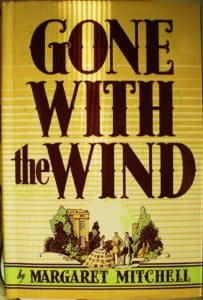
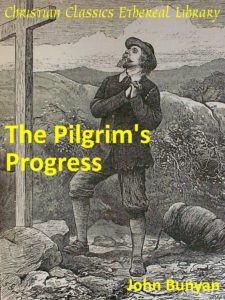
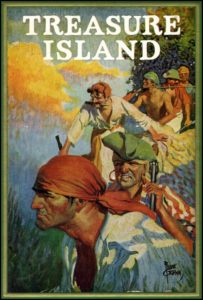

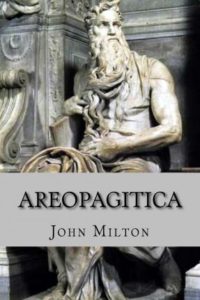
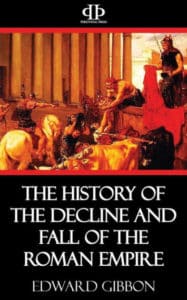



 RSS - Posts
RSS - Posts
John Clark Ridpath’s History of the United States (Ten volumes) Published in 1905 after his death.
Six volumes of Sir Winston S. Churchill’s memoirs of being Prime Minister of England during WW II.
THE TRAGIC ERA by Claude G. Bowers, best work written on Reconstruction after the War Between the States.
ATLANTIS, THE ANTEDILUVIAN WORLD by Ignatius Donnelly.
THE ART OF WAR by Sun Tzu.
I could go on and on, but these are a good start.
Excellent resources Dean! I have read and started to include in this article The Tragic Era and The Art of War, but stopped at six selections.
Other books I have read and recommend include: Red Shirts Remembered by William Arthur Sheppard; The Prostrate State by James Pike; A History of the English-Speaking Peoples by Winston Churchill; Paradise Lost by John Milton; Lex, Rex by Samuel Rutherford; The Book of Common Prayer (1789); The Generall Historie of Virginia, New England, and the Summer Isles by Captain John Smith, A Cloud of Witnesses by J.H. Thomson (Editor). Of course one cannot understand the world around them without minimum knowledge found in the King James and Geneva Bibles, plus many more.
For anyone to be unread in an era where old books are available in print and reprinted editions, and mostly for free online is a tragedy. The original histories of America written by the actual explorers, the men who challenged kings in their tyranny, those who lived through and described conditions after devastating war, men who stood by principle and faith who trusted God alone for deliverance.
As Jefferson said, “If a nation expects to be ignorant and free, in a state of civilization, it expects what never was and never will be.” Happy reading!